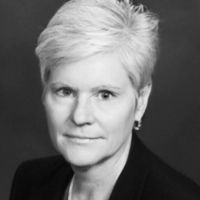There are many purposes in completing a speech sound system assessment. For our purposes today, we will focus on phonological disorders. However, part of that means that we have to engage in differential diagnoses. That is during the course of our assessment sessions, we have to do some ruling out. We have to rule out articulation. We have to rule out motor speech disorders and suspected childhood apraxia of speech. Of all the purposes of assessment listed below, we will focus on the nature and the severity of the disorder and a little bit on selecting targets for intervention. Selecting targets will be discussed very thoroughly in future sessions.
A-Z: Assessment for Severe Phonological Disorders
November 5, 2015
Share:
Related Courses
1
https://www.speechpathology.com/slp-ceus/course/treatment-approach-considerations-for-school-9472
Treatment Approach Considerations for School-Aged Children with Speech Sound Disorders
This course will address the theoretical underpinnings and research base related to differential diagnosis and treatment of articulation and phonological deficits in children with speech sound disorders. Special considerations for how to tailor evaluation and intervention to meet the needs of school-age children will be discussed.
auditory, textual, visual
Treatment Approach Considerations for School-Aged Children with Speech Sound Disorders
Presented by Kathryn Cabbage, PhD, CCC-SLP
Course: #9472Level: Intermediate1 Hour
AG Bell - LSLS/1.0 Domain 3; ASHA/0.1 Intermediate, Professional; IACET/0.1; Kansas LTS-S1370/1.0; SAC/1.0
This course will address the theoretical underpinnings and research base related to differential diagnosis and treatment of articulation and phonological deficits in children with speech sound disorders. Special considerations for how to tailor evaluation and intervention to meet the needs of school-age children will be discussed.
2
https://www.speechpathology.com/slp-ceus/course/back-to-basics-down-syndrome-8975
Back to Basics: Down Syndrome
This course will serve as a primer on Down syndrome for practicing speech-language pathologists. The basics of the syndrome and common speech, language, voice and fluency issues will be addressed. Effective treatment strategies for improving communication across the lifespan will also be discussed.
auditory, textual, visual
Back to Basics: Down Syndrome
Presented by Theresa Bartolotta, PhD, CCC-SLP
Course: #8975Level: Introductory1 Hour
AG Bell - LSLS/1.0 Domain 4; ASHA/0.1 Introductory, Professional; IACET/0.1; IBCCES/1.0; Kansas LTS-S1370/1.0; SAC/1.0
This course will serve as a primer on Down syndrome for practicing speech-language pathologists. The basics of the syndrome and common speech, language, voice and fluency issues will be addressed. Effective treatment strategies for improving communication across the lifespan will also be discussed.
3
https://www.speechpathology.com/slp-ceus/course/20q-dynamics-school-based-speech-10002
20Q: Dynamics of School-Based Speech and Language Therapy Variables
This course reviews dynamics of speech and language therapy variables such as session frequency, intervention intensity, and dosage, and how these are impacted by different service delivery models. It discusses how therapy outcomes are related to therapy quality, IEP goals, and SLP-level variables such as job satisfaction and caseload size.
textual, visual
20Q: Dynamics of School-Based Speech and Language Therapy Variables
Presented by Kelly Farquharson, PhD, CCC-SLP, Anne Reed, MS, CCC-SLP
Course: #10002Level: Advanced1 Hour
AG Bell - LSLS/1.0 Domain 3, Domain 7; ASHA/0.1 Advanced, Professional; IACET/0.1; Kansas LTS-S1370/1.0; SAC/1.0
This course reviews dynamics of speech and language therapy variables such as session frequency, intervention intensity, and dosage, and how these are impacted by different service delivery models. It discusses how therapy outcomes are related to therapy quality, IEP goals, and SLP-level variables such as job satisfaction and caseload size.
4
https://www.speechpathology.com/slp-ceus/course/sleuthing-for-s-and-r-9237
Sleuthing for /s/ and /r/: Facilitating Strategies for Residual Sound Errors
This course will discuss the rationale and strategies for teaching production of /s/ and /r/ for upper elementary school-age children and older. Errors on these two sounds are considered residual when production continues to be inaccurate beyond the developmental age of acquisition.
auditory, textual, visual
Sleuthing for /s/ and /r/: Facilitating Strategies for Residual Sound Errors
Presented by Lynn Berk, MA, CCC-SLP
Course: #9237Level: Introductory2 Hours
AG Bell - LSLS/2.0 Domain 3; ASHA/0.2 Introductory, Professional; IACET/0.2; Kansas LTS-S1370/2.0; SAC/2.0
This course will discuss the rationale and strategies for teaching production of /s/ and /r/ for upper elementary school-age children and older. Errors on these two sounds are considered residual when production continues to be inaccurate beyond the developmental age of acquisition.
5
https://www.speechpathology.com/slp-ceus/course/20q-continuum-approach-for-sorting-10008
20Q: A Continuum Approach for Sorting Out Processing Disorders
There is a good deal of confusion among audiologists and speech-language pathologists when a diagnosis of “processing disorder” is introduced. This course presents a continuum model to differentiate processing disorders into acoustic, phonemic, or linguistic aspects so that assessment and treatment can become more focused and effective. The roles of audiologists and SLPs in relation to processing disorders are described, and compensatory strategies for differing aspects of processing are presented.
textual, visual
20Q: A Continuum Approach for Sorting Out Processing Disorders
Presented by Gail J. Richard, PhD, CCC-SLP
Course: #10008Level: Intermediate1 Hour
AG Bell - LSLS/1.0 Domain 3, Domain 7; ASHA/0.1 Intermediate, Professional; IACET/0.1; Kansas LTS-S1370/1.0; SAC/1.0
There is a good deal of confusion among audiologists and speech-language pathologists when a diagnosis of “processing disorder” is introduced. This course presents a continuum model to differentiate processing disorders into acoustic, phonemic, or linguistic aspects so that assessment and treatment can become more focused and effective. The roles of audiologists and SLPs in relation to processing disorders are described, and compensatory strategies for differing aspects of processing are presented.

